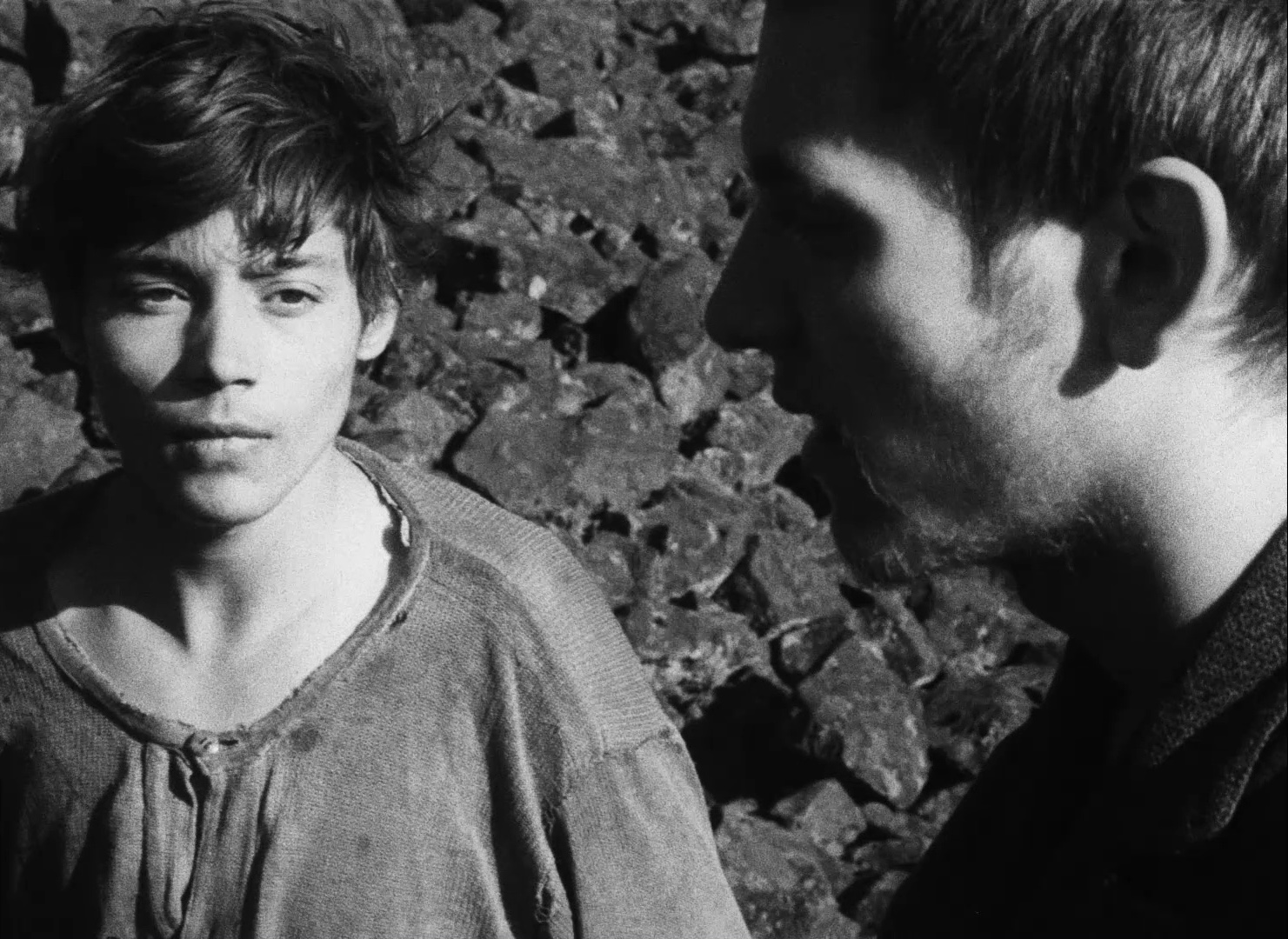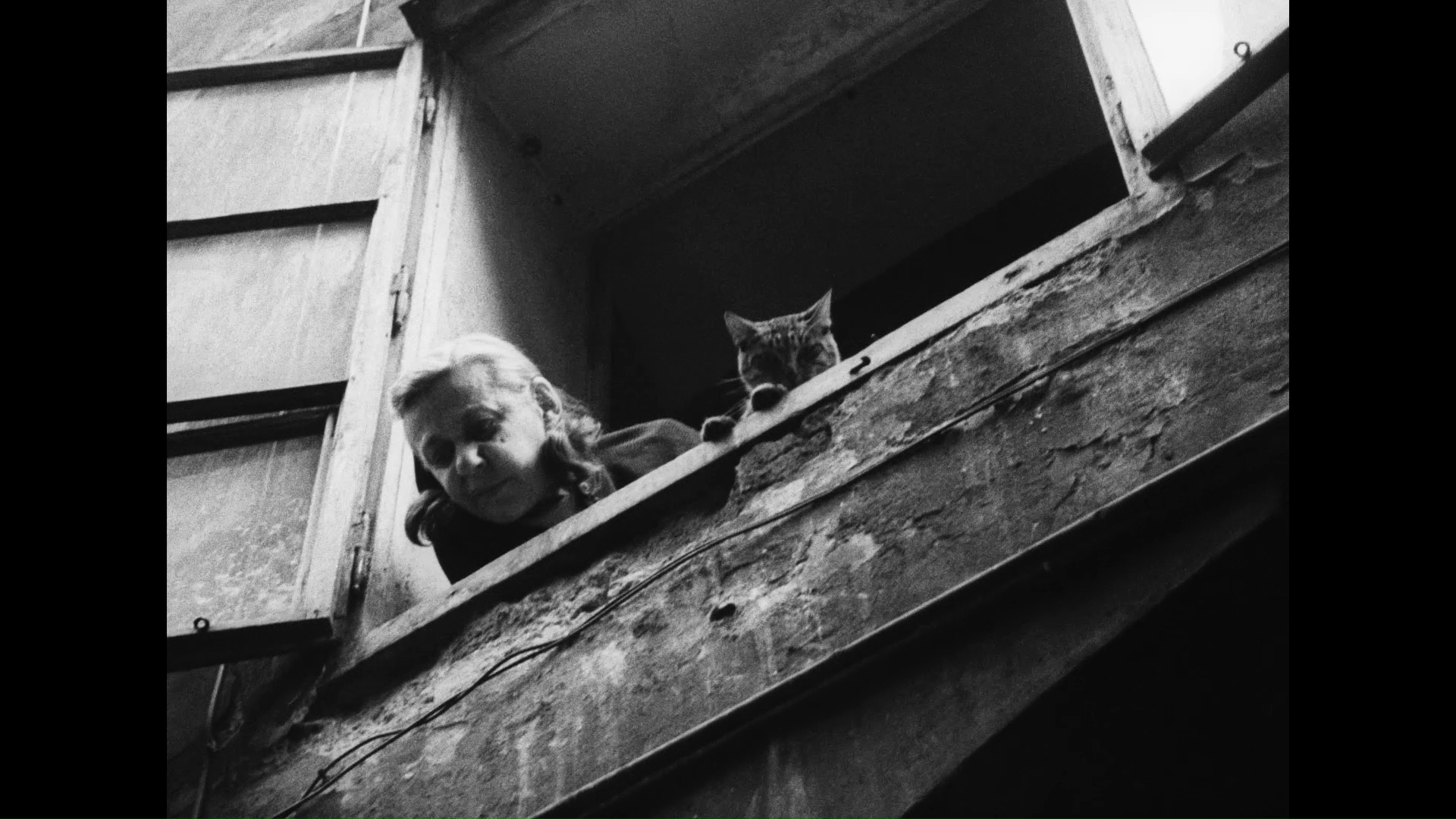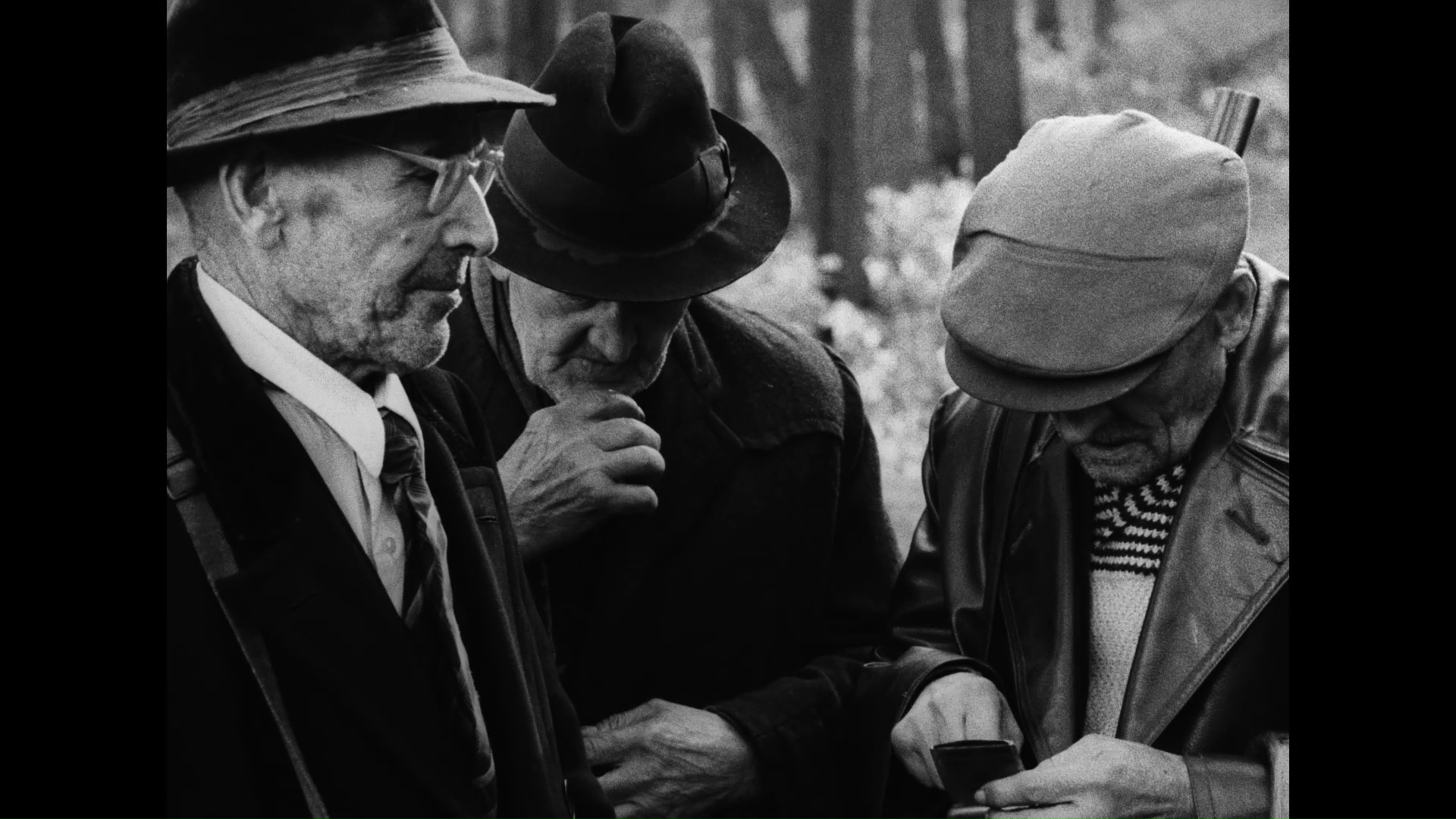
B&W, 1964, 67 mins. 29 secs.
Directed by Jan Němec
Starring Ladislav Jánsky, Antonín Kumbera, Irma Bischofova
Second Run (Blu-ray & DVD) (UK R0 HD/PAL)

 the first official Czechoslovak New Wave
the first official Czechoslovak New Wave  films is the virtually wordless Diamonds of the Night (Démanty noci), the striking debut feature from director Jan Němec who went on to helm A Report on the Party and Guests. The stripped-down look at the brutal consequences of war revolves around the journey of two nameless adolescents (Jánsky and Kumbera) who, while in transit between concentration camps, escape from their train and go on the run through the countryside. Along the way they encounter some peasants, wind up in hot water for alleviating their starvation by pilfering some bread, and try to outrun some gun-toting locals.
films is the virtually wordless Diamonds of the Night (Démanty noci), the striking debut feature from director Jan Němec who went on to helm A Report on the Party and Guests. The stripped-down look at the brutal consequences of war revolves around the journey of two nameless adolescents (Jánsky and Kumbera) who, while in transit between concentration camps, escape from their train and go on the run through the countryside. Along the way they encounter some peasants, wind up in hot water for alleviating their starvation by pilfering some bread, and try to outrun some gun-toting locals.  later Polish films by Andrzej Zulawski, especially The Third Part of Night. It's also very light on dialogue with maybe a couple dozen lines spoken over the course of its running time, instead using visual ideas including fantasies and flashbacks to keep the viewer tied to the boys' plight.
later Polish films by Andrzej Zulawski, especially The Third Part of Night. It's also very light on dialogue with maybe a couple dozen lines spoken over the course of its running time, instead using visual ideas including fantasies and flashbacks to keep the viewer tied to the boys' plight.  part of a box of '60s Czech cinema milestones, The Czechoslovak New Wave: A Collection. This was a laudable release at the time as it offered a great intro to some key films, with this one sharing space with DVDs of Intimate Lighting and The Cremator. Those two films were later issued on Blu-ray by Second Run, with this one arriving last.
part of a box of '60s Czech cinema milestones, The Czechoslovak New Wave: A Collection. This was a laudable release at the time as it offered a great intro to some key films, with this one sharing space with DVDs of Intimate Lighting and The Cremator. Those two films were later issued on Blu-ray by Second Run, with this one arriving last.  gallery, but you can easily live without it given the significant amount of new material added to the Blu-ray. A new Brooke audio commentary goes more
gallery, but you can easily live without it given the significant amount of new material added to the Blu-ray. A new Brooke audio commentary goes more  in depth in the film's drastically streamlined and simplified adaptation of Arnost Lustig's Darkness Casts No Shadow, the advent of the Czechoslovak New Wave, Němec's influences including William Faulkner and Last Year at Marienbad, the intention to use a voice over only to abandon the idea in post-production, and the technical crew who would play a major role in the era's cinematic output. Given that he has a lot of material to cram into 67 minutes, it's a very dense, informative track that moves at a very fleet pace. Also included is the 1960 Němec short film, A Loaf of Bread (11m38s), also based on a Lustig story about the plight of dwindling captives held by Nazis near the end of World War II, hidden from sight in a train car whose escape plan involves a need for food and a nearby stash of bread. Extremely grim and effective, it's a very appropriate companion piece to this film as it covers related subject matter from a more adult point of view. A new interview with the author's daughter, Eva Lustigova (17m28s), is also included from a 2018 shoot in London and featuring an endearing portrait of her father's achievements as an author, teacher, and adolescent survivor of multiple concentration camps. There's a great anecdote about how she "internalized literature," too, that provides some much-needed humor during the discussion.
in depth in the film's drastically streamlined and simplified adaptation of Arnost Lustig's Darkness Casts No Shadow, the advent of the Czechoslovak New Wave, Němec's influences including William Faulkner and Last Year at Marienbad, the intention to use a voice over only to abandon the idea in post-production, and the technical crew who would play a major role in the era's cinematic output. Given that he has a lot of material to cram into 67 minutes, it's a very dense, informative track that moves at a very fleet pace. Also included is the 1960 Němec short film, A Loaf of Bread (11m38s), also based on a Lustig story about the plight of dwindling captives held by Nazis near the end of World War II, hidden from sight in a train car whose escape plan involves a need for food and a nearby stash of bread. Extremely grim and effective, it's a very appropriate companion piece to this film as it covers related subject matter from a more adult point of view. A new interview with the author's daughter, Eva Lustigova (17m28s), is also included from a 2018 shoot in London and featuring an endearing portrait of her father's achievements as an author, teacher, and adolescent survivor of multiple concentration camps. There's a great anecdote about how she "internalized literature," too, that provides some much-needed humor during the discussion.![]()